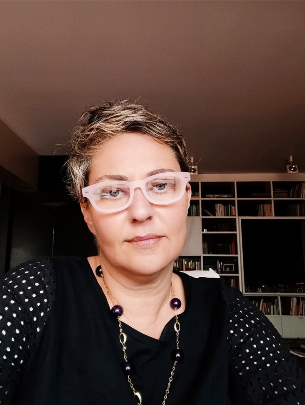Portalegre to install an intelligent and digital network for the collection of used cooking oil
Edited on
11 April 2022Portalegre to install an intelligent and digital network for the collection of used cooking oil
Waste cooking oils shall be considered as waste according to the European Waste List in accordance with Directive 2008/98/EC of the European Parliament. The European List of Waste, published by Commission Decision 2014/955/EU of 18 December 2014, concerns a harmonised list of waste considering the origin and composition of the waste.
This decision is mandatory and directly applicable by the Member States and the hazardous characteristics of waste are presented in the European Union Regulation No 1357/2014.
Waste cooking oils are a serious environmental problem when disposed of through urban sewage, making the work of Wastewater Treatment Stations (WWTPs) in a hard and difficult task. When disposed of in an uncontrolled manner, they constitute a potential danger of contamination of both soil and water, both in aquifers and in the rivers and waters of the sea. However, waste cooking oils can be valued in products such as biodiesel and soap and it is therefore essential to collect separately and forward them to appropriate destinations.
Directive 2008/98/EC of The European Parliament of 19 November 2008 lays down measures to protect the environment and human health by preventing or reducing the adverse impacts of waste generation and management, reducing the overall impacts of resource use and improving the efficiency of such use.
Also, the Portuguese national legislation (Law No 52/2021 of 10 August) prohibits the discharge of Waste Cooking Oils (WCO) to sewage systems as well as the deposition in landfill and suggests WCO recycling. The WCO can thus be seen not as a problem, but as a resource, being a raw material that can be used in the production of soap or energy through anaerobic digestion, and the production of biodiesel (Ferreira, 2011). The estimated production of used cooking oils in Portugal is in the range of 43.000 t to 65,000 tons per year, of which about 62 % are generated in the domestic sector, 37 % in the hospitality and catering sector and a residual fraction in the food industry. A family of four consumes on average 1 litter of oil per week. 1 litter of domestic oil lying in the drain of the kitchen stall comes to contaminate at once 1 million litters of water, enough for a person’s survival, up to 40 years old. 1000 litres of used edible oils make it possible to produce between 920 and 980 litres of biodiesel, a fuel with carbon dioxide emission rates that can be 80 % lower than those emitted when using diesel.
The Portalegre City Council is part of the Digiplace network of the URBACT programme, the Digi Place is an Action Planning Network that aims to set up an acceleration mechanism to enable cities to catch up the digitalisation opportunities in hard & soft infrastructure. For the Portalegre Municipaly, this problem was sensitive, and recently, in January 2022, it distributes new equipment for the collection of Used Food Oils, for the separate collection of used domestic food oils to various parishes in the Portalegre region, with an appealing image and also with various functionalities
These oil containers use Smart S+ software and are equipped with IoT technology - Internet of Things, connected to the mobile network, allowing citizens to consult their location and the level of filling in real time through a digital application and counting the number of depositions inserted, facilitating route management and collection of this type of waste
Oil container
The Smart Simple System (S+) is, on the other hand, a highly versatile state-of-the-art system that also allows interaction with users through the use of the RENO app mobile application, accessible through the QR code existing in the oil container. With the use of this mobile application, in addition to having access to sharing information about the amount of oil correctly sent by the user, they will also be able to check the location of the nearest oil containers, access campaigns to encourage good recycling practices, among other functionalities. This initiative is the result of a partnership between the Municipality of Portalegre and the company Hardlevel, the founding company of the National Oil Container Network (RENO). In this way, the citizen can know the distance to the oil container capable of receiving their nearest waste. Another feature is to allow accounting for everyone’s deposited waste and can transform them into points that can be exchanged for vouchers or other types of rewards. To use this deposit equipment and correct recycling of this waste, certain procedures should be ensured, such as: let the olive oil or domestic food oil cool and pour it into a clean plastic bottle. When filled, the bottle must be properly closed (so that it is not leaked) and deposited in the oil container. Compliance with this procedure is very important as no waste should be poured directly into the collector, no other types of waste such as margarine, butter, engine oil and lubricating oil should be deposited.
After collection of the used domestic oil deposited in the oil container, it will be transformed into biodiesel, soap, and other products. This process makes it possible to contribute to the promotion of the separation of household waste and, consequently, separate collection, as well as to the reduction of CO2 and the improvement of environmental sustainability.
References:
— Ferreira, Telma (2011). Environmental Impacts on the Valuation of Used Food Oils.
Master’s thesis. University of Aveiro
— http://data.europa.eu/eli/dec/2014/955/oj
— https://apambiente.pt/
— https://reno.pt/mapa?t
— https://www.hardlevel.pt/
Author
António Casa Nova
Nelson Arguelles
Teresa Narciso
 Submitted by Josephine Di Pino on
Submitted by Josephine Di Pino on
